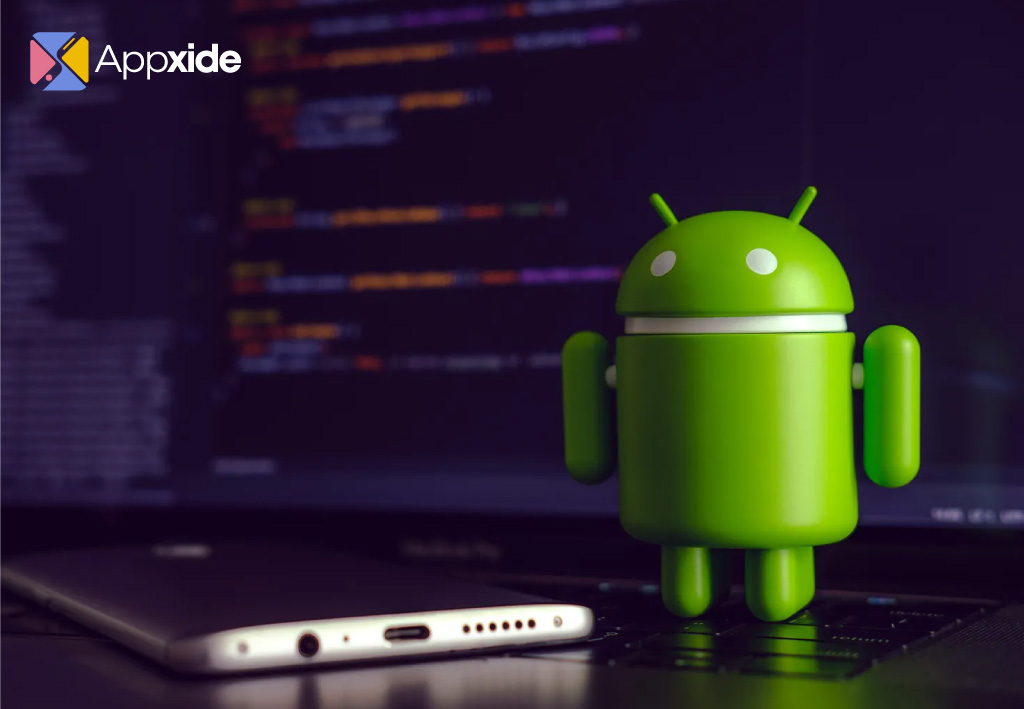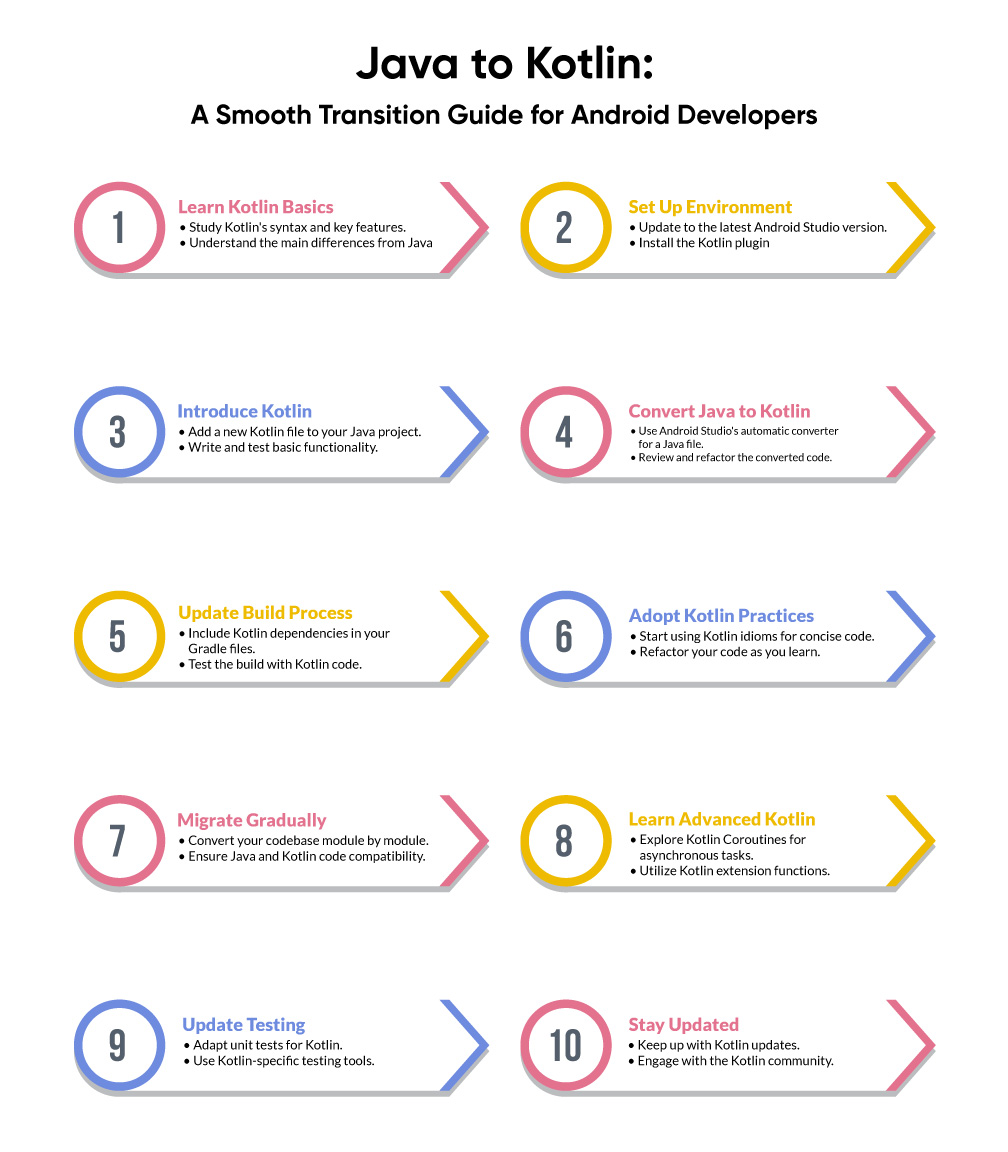Let's Get You Started

Let's Get You Started




Welcome to our super cool analysis of a topic that’s been a really popular thing in the app making world: Android App Development Java vs Kotlin. In this really long guide, we’re going to figure out the secrets, compare the good and bad features, and in the end, help you decide which language is the best for making Android apps.
Before we get into the hard stuff, let’s go on a little history adventure. Java has been here since the mid-90s and has been super important for making Android apps since the beginning. But then there’s Kotlin, the new kid on the block. It showed up in 2011 and Google started officially liking it for Android in 2017.
The Kotlin vs. Java debate isn’t just a geek’s squabble but a significant decision for developers and businesses alike. Each language has its strengths and weaknesses, influencing development speed, app performance, and even future maintenance.
Java has been the go-to language for Android developers for a long time. Let’s bullet out why it still holds a significant place:
However, Java isn’t without its downsides. It’s often criticized for its verbosity, which can slow down development and increase the risk of bugs.
Kotlin, though a newer language, has rapidly gained popularity. Here’s why:
Yet, Kotlin is relatively young, which means it has a smaller community and fewer resources compared to Java.
Let’s put Java and Kotlin side by side in a table to understand their differences better:
| Feature | Java | Kotlin |
| Syntax | Verbose | Concise |
| Null Safety | Prone to Null Pointer Exceptions | Built-in Null Safety |
| Community Support | Large | Growing |
| Learning Curve | Moderate | Easy for Java Developers |
| Compilation Speed | Generally faster | Slightly slower |
| Cross-platform Development | Strong capabilities | Gradually improving |
| Aspect | Java | Kotlin |
| Memory Management |
|
|
| Performance |
|
|
| Use-Cases |
|
|
When it comes to Java vs Kotlin Android development, the choice between Kotlin and Java isn’t black and white. Here are some points to consider when it comes to “Effectiveness of Kotlin vs. Java”:
To answer this million-dollar question, let’s look at various scenarios:
It’s evident that Kotlin is Google’s preferred language for Android development. However, Java’s deep-rooted presence in the Android ecosystem ensures it won’t be obsolete anytime soon.
Moving from Java to Kotlin can be an exciting yet a tough task for any Android developer. Kotlin is not just another programming language; it’s a modern, expressive, and concise language that offers numerous benefits over Java. But don’t worry, we’ll help you through the essentials of making this transition smoothly and efficiently, ensuring you leverage Kotlin’s full potential while avoiding common mistakes.
Before starting the coding process, it’s important to get comfortable with Kotlin’s syntax, which is more concise than Java’s. Kotlin eliminates much of the default code required in Java, making your codebase cleaner and more readable. Key features to focus on include:
Start your Kotlin process by going on first with small, non-critical parts of your Java project. This could be as simple as writing unit tests in Kotlin or converting smaller, standalone classes. Gradually, as you gain confidence, you can increase the complexity of the components you convert.
Use Android Studio’s built-in tools to convert Java code to Kotlin. This can be done by:
While these tools aren’t perfect and may require manual adjustments, they are excellent for kickstarting the conversion process.
Transitioning to Kotlin is not just about changing syntax; it’s about thinking in Kotlin. Idiomatic Kotlin refers to the specific ways of doing things in Kotlin that make the most of its features. This includes understanding and applying concepts like higher-order functions, lambdas, and delegation.
Kotlin is a language that’s constantly evolving. Stay updated with the latest developments by following Kotlin’s official blog, participating in Kotlin communities, and attending webinars or conferences. Engaging with the community is invaluable for getting support and learning best practices.
As you grow more comfortable with Kotlin, you can start refactoring existing Java code. Focus on rewriting components where Kotlin’s advantages would have the most significant impact, like parts of the code that deal with concurrency or where nullability has been a problem.
As you phase into Kotlin, start writing all new features in Kotlin. This approach allows you to build your Kotlin codebase progressively while maintaining your existing Java code. Eventually, you’ll find your project becoming predominantly Kotlin.
Once you’ve transitioned, it’s time to optimize. Kotlin offers many features that can improve performance and reduce the likelihood of errors. Regularly refactor your code to make it more idiomatic and efficient.

Can I use both Java and Kotlin in the same project?
Yes, Java and Kotlin are interoperable, meaning they can coexist in the same project.
Is Kotlin easier to learn than Java?
For those already familiar with Java, Kotlin is easier to learn due to its concise syntax and similar principles.
Does Kotlin offer better performance than Java?
The performance of Kotlin and Java is comparable, but Kotlin’s concise code can lead to fewer bugs and easier maintenance.
Will learning Kotlin give me an edge in the job market?
Absolutely! With Kotlin’s growing popularity, proficiency in it is becoming increasingly valuable.
Is Java going away in Android development?
Java is not going away anytime soon, but Kotlin is gaining preference for new projects.
And there you have it – an exhaustive guide on android app development java vs kotlin. Whether you choose the time-tested Java or the modern Kotlin, remember, the best language is the one that suits your project’s needs and your team’s expertise. To learn about other topics feel free to click at Mobile App Development Blogs.

Welcome to Appxide, where innovation meets utility in the world of app development. Our mission is to craft cutting-edge digital solutions that simplify lives and spark connections. With a diverse portfolio that traverses multiple sectors, we are committed to excellence and user-centric design. Stay tuned to our blog for the latest in tech, insights, and the stories behind our projects. Dive into the future with us – where every app we create is a step towards the extraordinary.